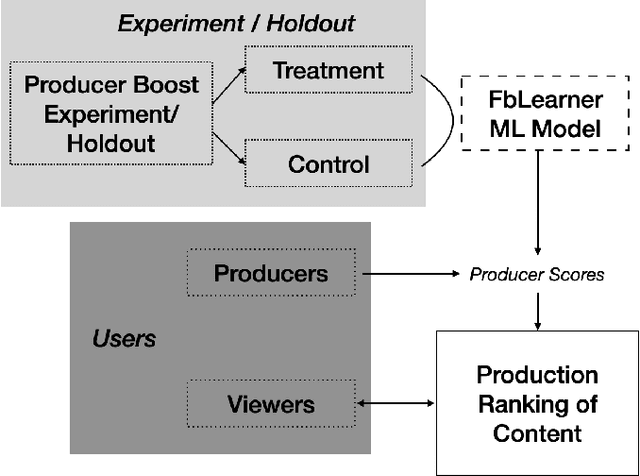Jens Rischbieth
Long-run User Value Optimization in Recommender Systems through Content Creation Modeling
Apr 25, 2022
Abstract:Content recommender systems are generally adept at maximizing immediate user satisfaction but to optimize for the \textit{long-run} user value, we need more statistically sophisticated solutions than off-the-shelf simple recommender algorithms. In this paper we lay out such a solution to optimize \textit{long-run} user value through discounted utility maximization and a machine learning method we have developed for estimating it. Our method estimates which content producers are most likely to create the highest long-run user value if their content is shown more to users who enjoy it in the present. We do this estimation with the help of an A/B test and heterogeneous effects machine learning model. We have used such models in Facebook's feed ranking system, and such a model can be used in other recommender systems.
 Add to Chrome
Add to Chrome Add to Firefox
Add to Firefox Add to Edge
Add to Edge